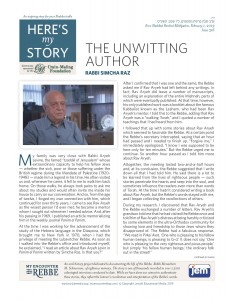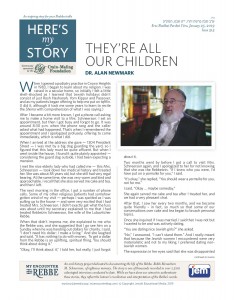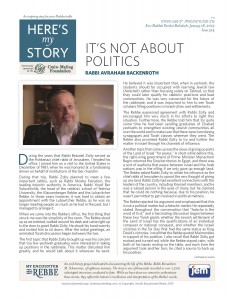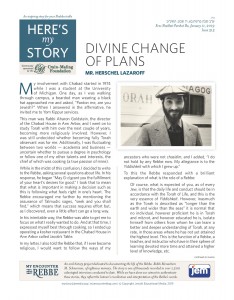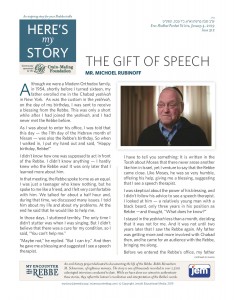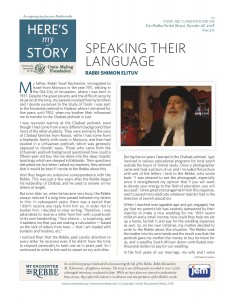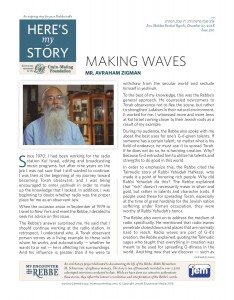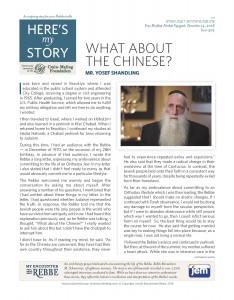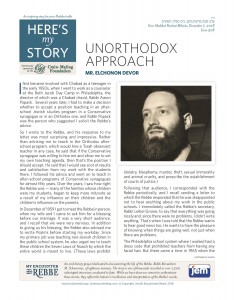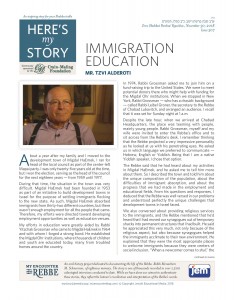The Unwitting Author
My family was very close with Rabbi Aryeh Levine, the famed “tzaddik of Jerusalem” whose extraordinary capacity to help his fellow Jews – whether the sick, poor or those suffering under the British regime during the Mandate of Palestine (1920-1948) – made him a legend in his time. He often visited us and, whenever he came, it fell to me to walk him back home. On those walks, he always took pains to ask me about my studies and would often invite me inside his house to carry on our conversation. And so, from the age of twelve, I forged my own connection with him, which continued for over thirty years. I came to see Rav Aryeh as the wisest person I’d ever met; he became a mentor whom I sought out whenever I needed
advice. And, after his passing in 1969, I published an article memorializing him in the weekly journal Panim el Panim.
At the time I was working for the advancement of the study of the Hebrew language in the Diaspora, which brought me to New York in 1970, when I had the privilege of meeting the Lubavitcher Rebbe. As soon as I walked into the Rebbe’s office and introduced myself, he exclaimed, “I read an article about Rav Aryeh Levin in Panim el Panim written by Simcha Raz. Is that you?”
After I confirmed that I was one and the same, the Rebbe asked me if Rav Aryeh had left behind any writings. In fact, Rav Aryeh did leave a number of manuscripts, including an explanation of the entire Mishnah, parts of which were eventually published. At that time, however, his only published work was a booklet about the famous Kabbalist known as the Leshem, who had been Rav Aryeh’s mentor. I told this to the Rebbe, adding that Rav Aryeh was a “walking Torah,” and I quoted a number of teachings that I had heard from him. (more…)


